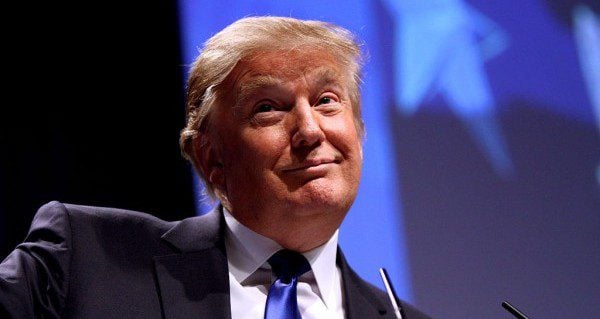While many of Trump’s advisory board members (business, arts) jumped ship following his (widely perceived to be) inadequate response to Charlottesville, his white evangelical advisors have remained steadfastly by his side–with only one exception.
![Shealah Craighead [Public domain], via Wikimedia Commons](https://wp-media.patheos.com/blogs/sites/503/2017/08/Donald_Trump_delivers_remarks_at_the_Liberty_University-e1503670479622.jpg)
Some apologists point to Trump’s (however evolved and recent) “pro-life” position and his promise to appoint a conservative to the supreme court–which is one promise he’s actually fulfilled.
Because of this, so the story goes, conservative evangelicals can say, “Well, yes, Trump may be a _____ (fill-in-the-blank), but at least he’s right on the issue we care most about.
Problem is, that whole centrality of abortion thing may be more of a ruse than anything else. Certainly a look back at the origins of the religious right suggests this to be the case.
This is exactly the point Randall Balmer made recently. Balmer, an accomplished historian of evangelicalism, notes in the LA Times the dissonance of a group that prides themselves on “family values” being among the most visible and most loyal supporters of Trump. How does this happen? Is it Trump’s pro-life position?
Nope. It’s more sinister. It’s racism.
The Religious Right formed in the 70s because of racism. The movement was born from a “culture war” battle to preserve the right for fundamentalist Christian colleges to remain segregationist while maintaining their tax-exempt status.
Balmer explains:
What galvanized Jerry Falwell and other leaders in the 1970s was not abortion, which they considered a “Catholic issue.” They mobilized instead to protest the rescission of tax-exempt status at Bob Jones University and other “segregation academies.” (Falwell had opened his own segregation academy in Lynchburg, Va., in 1967.) Only later, in advance of the 1980 election, did Weyrich and others recognize that abortion could mobilize grass-roots evangelical voters.
Evangelicals’ overwhelming support for Trump represents not so much a concern for securing a “pro-life” judiciary as a return to the founding principles of their political movement. Trump himself may or may not be a racist, but his campaign rhetoric undeniably appealed to racist sentiments: his assertion that a judge of Mexican heritage could not be impartial, his characterization of Mexican immigrants as rapists, his castigation of Muslims.
The 2016 presidential election, then, allowed the religious right finally to dispense with the fiction that theirs was a movement concerned about family values. Evangelical voting behavior suggests that the religious right was merely reverting to the racism that prompted its entry into the political arena in the late 1970s.
If this interpretation is mistaken, if the religious right — or at least its leadership — is not racist, then we might reasonably expect that the leaders of the movement would rush to condemn white supremacists and the equivocal responses of the president, who blamed the violence in Charlottesville on “both sides.” Where are these evangelical voices of condemnation?
In a word, nowhere.
It may be that many evangelicals are genuinely pro-life today, and that, despite the real motivations that galvanized the movement’s entrance into the political sphere, it is indeed abortion that matters now.
But as Balmer rightly suggests, if evangelicalism wants to disavow racism and reject white supremacy, its leaders will need to reject and dissociate from the very public figures who currently represent their movement in the White House and who have the president’s ear.











